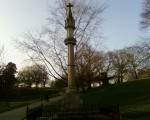
On this day in history events for 31st August to 6th September.
[Read More...]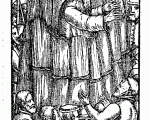
“The Martyrdom of Robert Samuel, Preacher, suffering for the true defence of Christ’s Gospel” is the title of the chapter of martyrologist John Foxe’s account of the imprisonment and death of Robert Samuel, former minister of East Bergholt Church in Suffolk, who was burned at the stake on 31st August 1555. Samuel was one of the Ipswich Martyrs, one of nine people who were executed between 1515 and 1558 for their Lollard or Protestant beliefs.
[Read More...]
For those who were not able to get to our live chat with Susan Higginbotham – you really missed a special chat – here is the transcript where we discuss John Dudley.
[Read More...]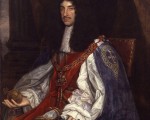
Today we’re broadening our focus to the kings and queens of Great Britain. Test your knowledge with this fun quiz.
[Read More...]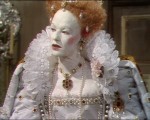
As part of Gareth Russell’s book tour for “A History of the English Monarchy: From Boadicea to Elizabeth I”, I’m delighted to welcome Gareth to the Tudor Society today, which is his home from home anyway! I hope you enjoy his article and please see the bottom of this post for details on how to enter the giveaway for a copy of his wonderful book. Over to Gareth…
Elizabeth I’s decline began in her moment of apotheosis. The defeat of the Spanish Armada coincided with the death of Robert Dudley, Earl of Leicester. In the middle of the victory celebrations, the Queen received the news that her childhood friend-turned-adult-love had passed away and she was heartbroken. It has long been surmised that Elizabeth would have married Leicester had he not already been married and his first wife, Amy Dudley (née Robsart), had not then been found dead in circumstances that looked suspiciously like murder or suicide. However, during a bout of serious illness when she thought she was about to die, Elizabeth made a point of denying that she had ever taken Leicester into her bed, no matter how much she loved him. Despite mountains of speculation then and since, there is in fact no firm evidence at all to suggest that Elizabeth I was not a virgin as she claimed. The risk of pregnancy, the loss of her reputation, death in childbed or yielding her authority to a man made celibacy by far her safest choice. We will never know, of course, what happened every day and night of her life, but it is worth pointing out that it should not be taken as axiomatic, as it too often is, that Elizabeth Tudor lied about her life-long virginity.
[Read More...]
In today’s Claire Chats, I share with you some information on Holy Trinity Church, where Shakespeare was baptised and buried, along with photos Tim took on our recent visit.
[Read More...]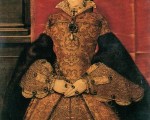
The following letter was written by Princess Mary, the future Mary I, to her brother Edward VI on 19th August 1551. Henry Ellis, editor of “Original Letters, Illustrative of English History…” explains:
“The following Letter from the Princess Mary to her brother, is preserved upon the Books of the Privy Council. It is probably the best specimen which we have in our power to give of her talent at writing: and, with the singular Paper which follows it by way of comment, will show her to have been a woman of more intellect than the world has usually supposed. Queen Catherine Parr took great pains in the education both of Mary and Elizabeth.
[Read More...]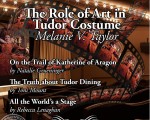
Lights, Camera, Action… September is “movie month” for the Tudor Life magazine. We’ve gone crazy with everything film related – but of course it is all in relation to the real history of the times!
[Read More...]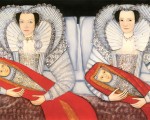
Childbirth is openly discussed in today’s society. Images of pregnant women appear in magazines and women giving birth can be seen on television and in movies. Yet during the medieval period, childbirth was deemed a private affair. Giving birth in the middle ages was a dangerous time for women and childbirth did not discriminate. Young mothers, older mothers, poor or rich mothers, all could die not only in childbirth but also due to complications afterwards. Sadly, more than one in three women died during their child-bearing years.
[Read More...]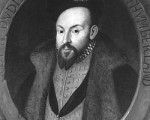
On 27th August 1549, the Battle of Dussindale took place, ending Kett’s Rebellion in Norfolk.
[Read More...]
Historian Gareth Russell is the editor of our monthly Tudor Life magazine and he’s been working hard on scheduling expert articles and also expert talks for the next few months. We are thrilled to bits that so many historians and authors want to be involved in the Tudor Society by offering their knowledge and expertise to our members – a big thank you to them and to all our members too for your continued support.
Contributors to Tudor Life magazine in the coming months include:
[Read More...]
Just a reminder that Susan Higginbotham’s live chat is taking place on the Tudor Society chatroom this Friday (28th August) at 9pm US Eastern time.
[Read More...]
Just to let you know that author and Tudor Life magazine editor Gareth Russell has embarked on a week long book/blog tour for his non-fiction history book A History of the English Monarchy: From Boadicea to Elizabeth I. He will be stopping here at the Tudor Society on 30th August but do catch him at his other stops too to enter the giveaways for a copy of his book.
[Read More...]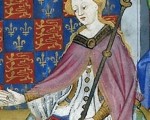
Marguerite d’Anjou, more commonly known as Margaret of Anjou and wife to Henry VI of England, was born to René, Duke of Anjou, and Isabella, daughter of the Duke of Lorraine, in Pont-à-Mousson, France on 23 March 1429. Pont-à-Mousson lies in modern north-eastern France, close to the countries of Luxembourg and Lichtenstein. The Moselle river flows through Pont-à-Mousson and the skyline boasts the impressive Norbertine abbey, which was built in 1121. Young Marguerite spent her early years in the castle of Capua in Naples, Italy, where her father was titular king, and in the castle of Tarascon on the Rhône River. Marguerite was tutored by her well-educated mother and may have received some lessons from Antoine de la Salle, who tutored Marguerite’s brothers.
[Read More...]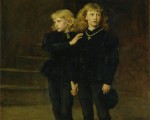
Philippa Langley, who, of course, spear-headed the Looking for Richard project, has announced that she is going to investigate the disappearance of the Princes in the Tower by teaming up with cold case experts.
[Read More...]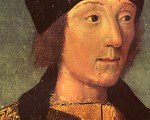
As yesterday was the anniversary of the Battle of Bosworth, why not test your knowledge of this historic battle.
[Read More...]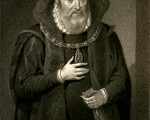
On 23rd August 1548, Francis Talbot, 5th Earl of Shrewsbury, arrived at the Siege of Haddington, in East Lothian, Scotland, with a large army.
The siege was actually part of a series of sieges at Haddington, which were all part of the Anglo-Scottish war known as the War of the Rough Wooing, so named because it was had been started in 1543 by Henry VIII in a bid to secure a marriage agreement between England and Scotland, between Prince Edward and Mary, Queen of Scots.
[Read More...]
Here is the transcript from the live chat with Livi Michael. We had an amazing discussion about many things to do with Livi’s talk, and thank you so much to all those who attended – it was great fun!
[Read More...]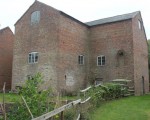
In today’s Claire Chats I talk about my recent visit to Charlecote Mill in Warwickshire.
[Read More...]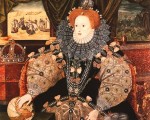
On 20th August 1588 a thanksgiving service was held at St Paul’s in London to give thanks to God for England’s victory over the Spanish Armada. The Armada had been defeated, obliterated in fact, yet the English fleet was left intact and only around 100 English men were lost in the skirmishes.
[Read More...]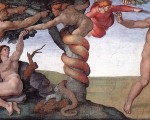
While in today’s modern times many people are more open with their knowledge and acceptance of sexual intercourse, during the Tudor period things were very different.
The church played a major role in sex and the duties of the female body. The Virgin Mary and Eve, the mother of mankind, helped to develop people’s views of sexual intercourse, birth and the formation and function of the female body. Messages were conveyed not only through sermons but also through images and paintings. The act of intercourse, was tainted by the fall of Eve. Women were seen as inferior versions of men and were thought to be greatly susceptible to the devil and the dark forces. The Church taught that women’s bodies ran hot and thus they always desired sex and acts of fornication. Thus marriage and sex within marriage was the only way to control a woman’s desires. Sex was strictly confined to marriage and only for the purpose of reproduction.
[Read More...]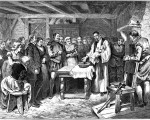
On this day in history, 18th August 1587, the first European Christian was born in the New World. Virginia Dare was the daughter of Ananias Dare and his wife, Eleanor, daughter of Governor John White. She was born in the Roanoke colony, in what is now North Carolina, just days after the arrival of the colonists on Roanoke Island. Virginia was baptised the following Sunday.
[Read More...]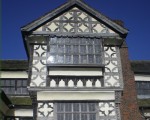
To celebrate the Tudor Society’s 1st birthday and the publication of our Tudor Society guide to Tudor Places of Great Britain in the autumn, and as a thank you to our members, we’ll be giving away two gifts to members…
[Read More...]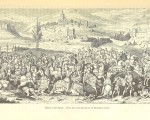
On 16th August 1513, a battle which became known as “the Battle of Spurs” or the Battle of Guinegate, took place at Guinegate (Enguinegatte) in France. It was a battle between the English, backed by Imperial troops, and the French and is called “the Battle of the Spurs” because the French knights, taken by surprise and realising that they were outnumbered and outmanoeuvred, fled on horseback, their spurs glinting in the sunlight.
[Read More...]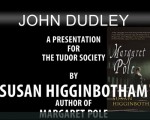
In our second expert video of the month, we have Susan Higginbotham. Susan discusses John Dudley and analyses whether all that was said about him is true.
[Read More...]